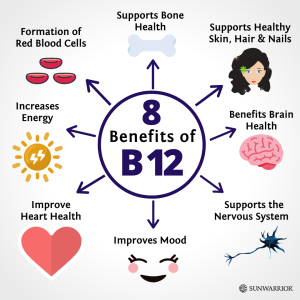
Minerals play a fundamental role in the optimal functioning of our bodies. While macronutrients like carbohydrates, proteins, and fats are well-known for their significance, trace elements, also known as micronutrients, are equally important. These essential minerals, even though required in smaller amounts, are crucial for various bodily processes.
What are Trace Elements?
Trace elements are essential minerals required by our bodies in very small quantities, typically less than 100 milligrams per day. Despite their minimal requirement, they are necessary for maintaining overall health and wellness. Some common examples of trace elements include iron, zinc, copper, manganese, iodine, selenium, and chromium.
The Role of Trace Elements in the Body
Each trace element serves a specific purpose within our bodies:
1. Iron
Iron is vital for the production of hemoglobin, a protein in red blood cells that carries oxygen from the lungs to the body’s tissues. It also plays a crucial role in the production of energy.
2. Zinc
Zinc is involved in numerous enzymatic reactions and is essential for DNA synthesis, immune function, wound healing, and normal growth and development during pregnancy, childhood, and adolescence.
3. Copper
Copper is an essential component of several enzymes, including those involved in energy production, connective tissue formation, and neurological function. It also contributes to the formation of red blood cells.
4. Manganese
Manganese is involved in bone formation, metabolism, and the breakdown of amino acids, cholesterol, and carbohydrates. It also acts as an antioxidant, protecting against cellular damage.
5. Iodine
Iodine is a crucial component of thyroid hormones, which regulate metabolism, growth, and development. It is especially important during pregnancy and early childhood for proper brain development.
6. Selenium
Selenium acts as an antioxidant, protects against oxidative stress, helps regulate thyroid function, and is involved in immune system function and reproduction.
7. Chromium
Chromium is essential for insulin function, as it helps regulate blood sugar levels. It plays a role in carbohydrate, fat, and protein metabolism.
Consequences of Trace Element Deficiencies
The absence or insufficient intake of trace elements can significantly impact our health. Deficiencies in these minerals can lead to various health problems:
1. Iron Deficiency
Iron deficiency can cause anemia, resulting in fatigue, weakness, shortness of breath, and impaired cognitive function.
2. Zinc Deficiency
Zinc deficiency can impair immune function, delay wound healing, lead to hair loss, and affect growth and development in children.
3. Copper Deficiency
Copper deficiency may lead to anemia, osteoporosis, and neurological disorders.
4. Manganese Deficiency
Manganese deficiency can cause bone malformation, impaired growth, and impaired glucose tolerance.
5. Iodine Deficiency
Iodine deficiency can result in goiter, hypothyroidism, impaired mental development, and infertility.
6. Selenium Deficiency
Selenium deficiency may weaken the immune system, lead to muscle weakness, and increase the risk of certain cancers.
7. Chromium Deficiency
Chromium deficiency might impair glucose metabolism, leading to increased insulin resistance and an increased risk of metabolic disorders.
Sources of Trace Elements
To ensure adequate intake of trace elements, it is essential to consume a balanced diet consisting of various food sources. Some natural sources of trace elements include:
1. Iron
Iron-rich foods include red meat, poultry, fish, legumes, fortified cereals, and leafy green vegetables.
2. Zinc
Zinc can be obtained from meat, shellfish, legumes, nuts, seeds, and whole grains.
3. Copper
Copper is found in liver, shellfish, nuts, seeds, and whole grains.
4. Manganese
Manganese can be found in nuts, seeds, whole grains, leafy green vegetables, and certain fruits.
5. Iodine
Iodine is present in iodized salt, seafood, seaweed, and dairy products.
6. Selenium
Selenium can be obtained from brazil nuts, seafood, lean meats, and whole grains.
7. Chromium
Chromium is found in broccoli, whole grains, meat, and spices.
In Conclusion
Although trace elements are required in small quantities, their importance cannot be underestimated. They play a vital role in supporting various bodily functions and maintaining overall health and well-being. Therefore, ensuring an adequate intake of trace elements through a balanced diet is necessary to prevent potential deficiencies and associated health consequences.

